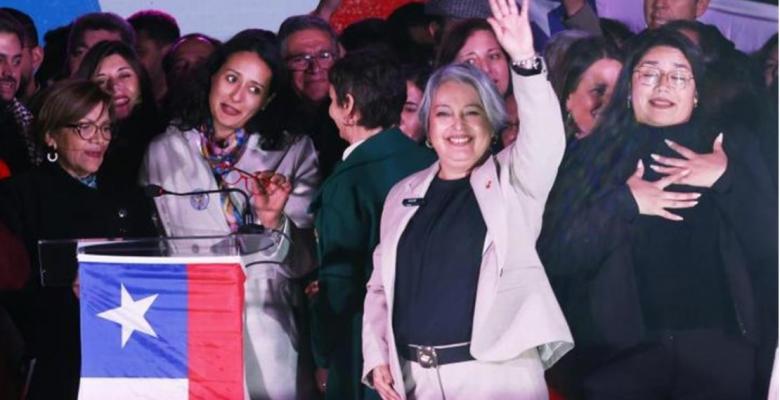Chilean Left Faces a Difficult Challenge
especiales

The ambivalent and irregular performance of Gabriel Boric's administration makes the path to victory very difficult for the ruling party's candidate in the presidential and legislative elections next November, in which right-wing and far-right candidates are favored.
Nearly 800,000 members of the left and center-left, despite the numerous candidates, overwhelmingly elected Jeannette Jara of the Communist Party. The rumor at the time, that she was not the president's favorite, did not please Boric, who later came out to cheer her, recalling her good work at the head of the Ministry of Labor.
A communist presidential candidate is anything but easy in a nation still permeated by Pinochetism, with strong opponents on the right-wing platform.
Therefore, the defeated rival candidates agreed, the path forward now is essential unity to win the country and defeat the worst right wing in years: that of fake news, that of the campaign of terror, which will unleash its entire media and ideological arsenal to combat Jeannette Jara's candidature in next November's elections, although the candidacy will be officially announced in August.
The opposition will instill a narrative of building a far-left monster that doesn't exist, and against this, we must have an intelligent strategy that doesn't feed those phantoms, that doesn't give it more visibility. We shouldn't get carried away by going out to attack every nonsense the right is going to spew in this election, which we know in advance will be many, party spokesperson members of the official coalition agreed.
I think Jara's biggest obstacle, besides the communist militancy—always so unfairly slandered—is Boric's failure as president and his recognition that he was unable to do most of the things he had set out to do to improve the lives of the people.
EVALUATION
Assessing Gabriel Boric's presidency, as he begins his final year, requires considering the opportunities and constraints, as well as the government's political management capacity. He has certainly faced considerable problems in advancing reforms due to his minority legislative contingent, a lack of pragmatism and adaptive capacity, the executive branch's difficulties in controlling the political agenda, and a persistent difficulty in assuming the trade-offs (economic and/or political) in certain reforms.
For Marcelo Mella Polanco, a Chilean academic from the Department of Political Studies and a doctor in American Studies, Boric has had to overcome three restrictions and that "a balanced recognition of the achievements and failures of President Boric's administration will be a necessary condition to accelerate the learning curve of the political space of the new left led by the current government until September 4, 2022, referendum," an event to amend the Pinochet constitution, which it lost.
Explaining the deterioration of government effectiveness in Chile as a problem exclusively in the current government's decision-making without considering institutional restrictions is another manifestation of self-deception by the political class and also a sign of the electoral exploitation of structural problems.
If the actors who governed the country over the last 30 years suffered from the self-deception of believing that everything was fine, the emerging political groups suffered from the self-deception of believing that nothing was fine and that it was a matter of will and convictions. Currently, the illusion consists in believing that everything wrong with Chilean democracy can be explained by the mistakes of the current government. However, there’s an underlying problem in the political system that creates conditions that hinder the executive-legislative relationship, as well as the governance of the different political blocs.
I repeat, from the perspective of institutional constraints, a government with a minority legislative contingent, with high party fragmentation, and under the effects of a super-cycle of elections must operate under external conditions that increase the costs of agreements, limiting legislative effectiveness.
WHAT'S NEXT
Now the left must show that Jeannette Jara led the increase in the minimum wage when the Republicans voted against it, the 40-hour workday when the Republicans voted against it, when the right was inventing things like saying that if it were for the 40-hour workday, firefighters wouldn't go to put out fires or Alexis Sánchez wouldn't play in the Copa América.
Even with humor, we can show the absurdities of the right and what the left has already done and what it wants to do for Chile, such as addressing the rising cost of living and rent, the difficulties in accessing housing, having children, and the unfairness of VAT. Don't spend 90% of your time responding to the right, because that's giving them prominence and making them the center of the campaign, when Jeannette Jara should be the center of the campaign. “We must restrain ourselves, not get carried away, not give them more air, but rather engage in a learning process. We must draw conclusions from the terror campaign for the first Convention. We must study how these things were dealt with smartly abroad so as not to fall for it. They're going to constantly point the finger at us, and we have to be smarter than them. That's a challenge to running a good campaign,” point out left-wing promoters, who offer the following:
“Speaking of the Chilean democratic political system, of the political landscape, is this a new era, is it an important sign, that a communist militant has won an election like this, when we see an advance of the extreme right on the regional and international levels?”
Translated by Amilkal Labañino / CubaSi Translation Staff













Add new comment